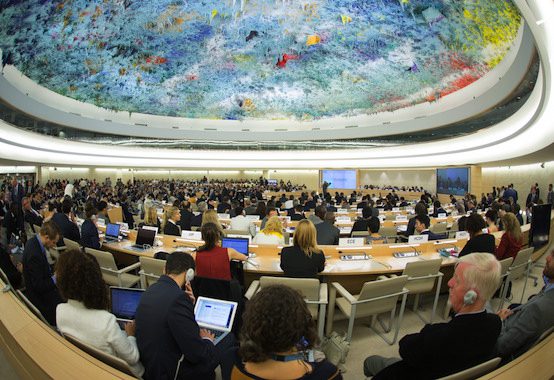Haley and UNSCR 2334

Joshua Keating was following Haley’s confirmation hearing today, and here he comments on her opening statement:
The vision of America’s role in the United Nations laid out in Haley’s opening statement is depressingly myopic. Haley described her background, acknowledged that diplomacy will be new for her, but cited her record as governor as qualification to ” reform the UN in ways that rebuild the confidence of the American people.”
But the only issue she brought up was “the UN’s long history of anti-Israel bias.”
Haley’s later testimony often came back to her opposition to UNSCR 2334 and her belief that the U.S. ought to stand with its “close ally” at the U.N, which confirmed the impression that she thought this was one of her main responsibilities as our ambassador. That much was expected from her prepared remarks, but the odder part of her testimony was this statement about the Security Council resolution:
First, we need to go and make sure that we let Israel know that we are an ally and that we will be an ally. And it is important because what happened with resolution 2334–it basically said that being an ally to the United States doesn’t mean anything [bold mine-DL]. And if we are a strong ally, if we always stand with them, more countries will want to be our allies. And those that challenge us will think twice before they challenge us. What we saw with 2334 was…it not only sent a bad signal to Israel…it told the entire world that we don’t stand with anyone.
These are strange comments in several ways. First, the U.S. abstention meant that our government was allowing the passage of a resolution that was overwhelmingly supported by most other member states and all other members of the Security Council, including several longstanding treaty allies. The position that would have aligned the U.S. most closely with our actual allies was to vote in favor of the resolution. Furthermore, the resolution endorsed existing U.S. policy regarding Israeli settlements. Vetoing the resolution would have represented a rejection of our own position. For that matter, Israel isn’t an ally, so allowing the passage of a resolution that criticizes their illegal behavior has no bearing on our relations with real treaty allies. Far from telling the world that “we don’t stand with anyone,” allowing the passage of the resolution belatedly put the U.S. closer to the broad international consensus that includes almost all other countries in the world.
Haley made other statements during her testimony that were ill-advised, but this one stood out for showing both extreme hawkish “pro-Israel” bias and an almost total misunderstanding of who our real allies are and how the U.S. should manage relations with them.
Comments